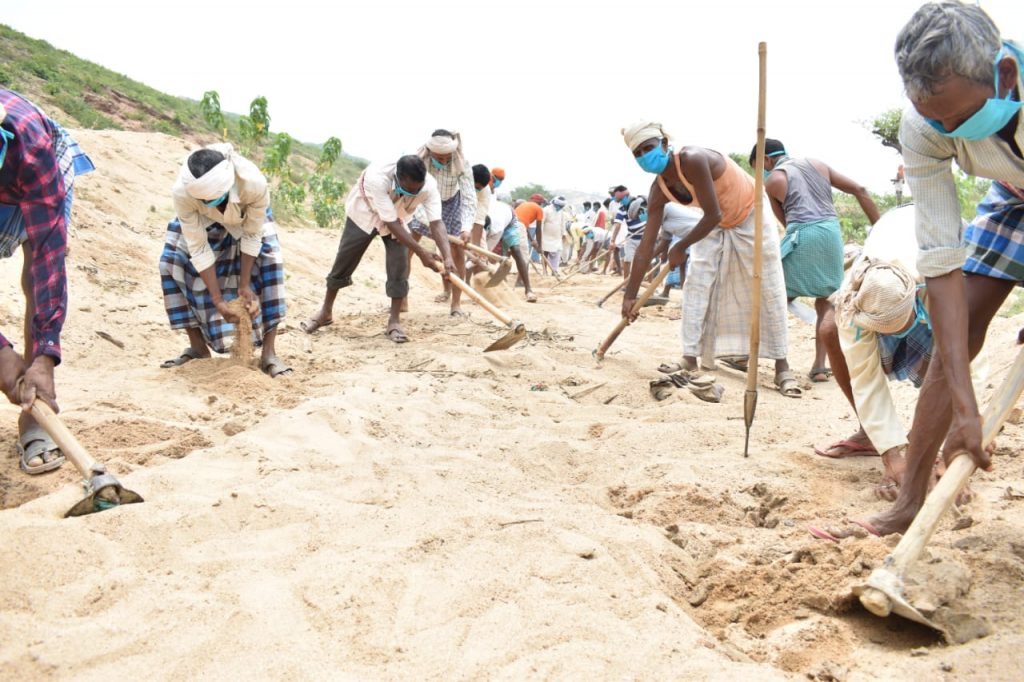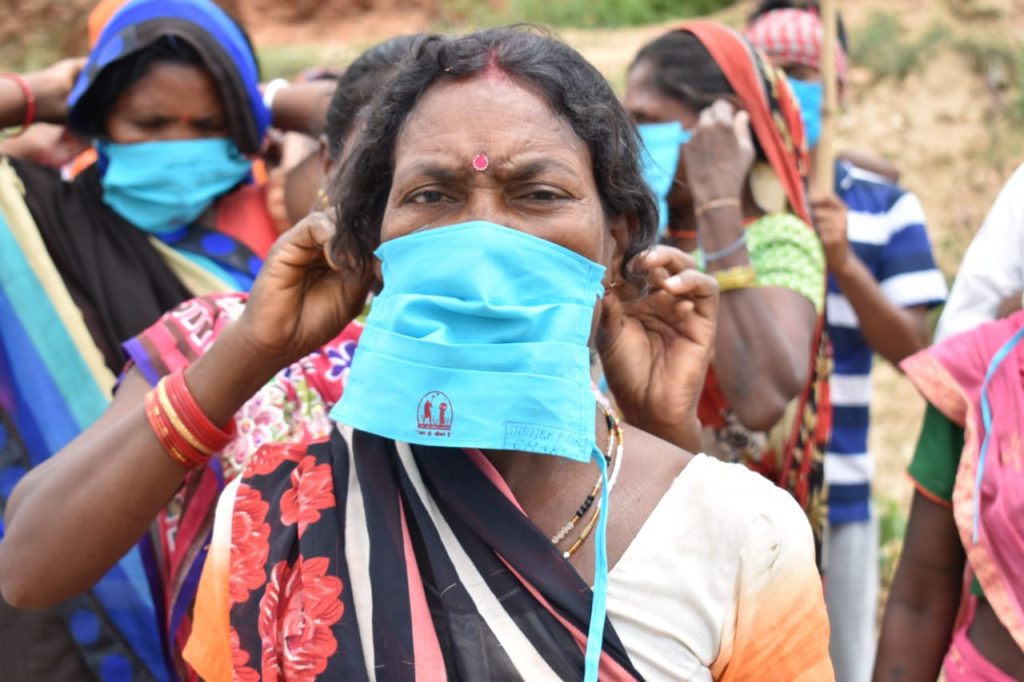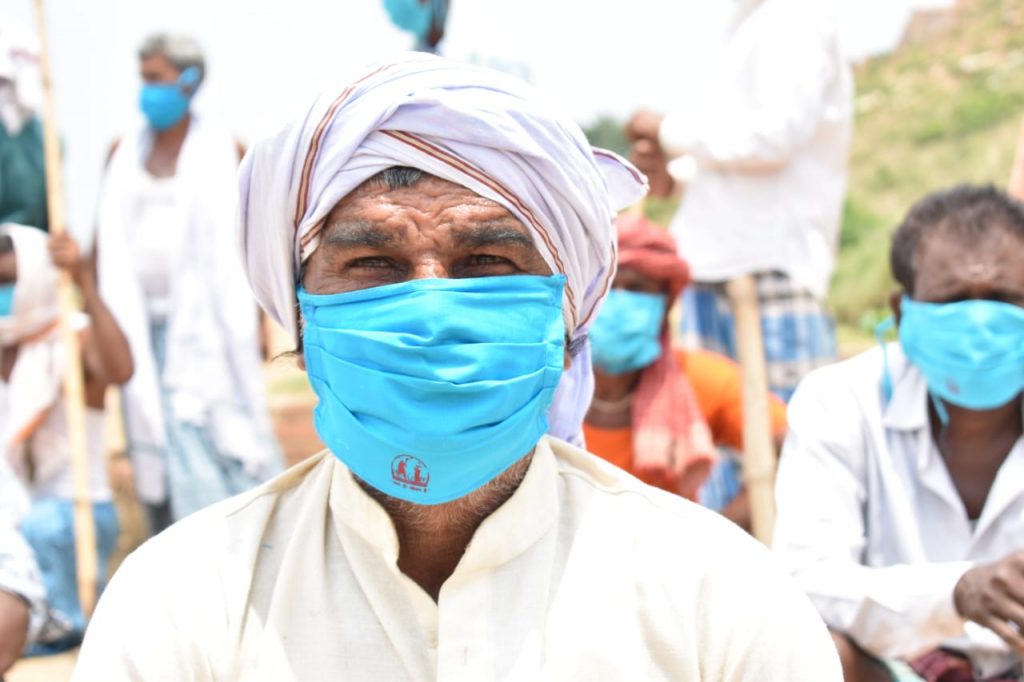Due to the spread of coronavirus pandemic, hundreds of thousands of people lost their livelihoods in India. The reverse migration of lakhs of migrants from cities to rural areas further burdened the rural economy as all kind of economic activities were put on hold. During this time, to provide adequate relief to the distressed communities, Welthungerhilfe with its partner Janhit Vikas Samiti (JVS) initiated a campaign focused on sharmdaan or voluntary manual work. Under this campaign, communities were engaged in reviving their natural resources like water ponds and Pynes (small canals) in their area.

In Bihar, Welthungerhilfe’s focus is to revive the Ahar Pynes. They are small canals that bring water to smallholder farmers in rural areas. On 15th May, the campaign was initiated by organizing four shramdaan camps. The first camp was organized in Rohu block of Nawada district (Sumrain Pyne) Bihar where 40 volunteers were involved in reviving the Pyne. This Pyne is part of a 52 village model being established under the project for sustainable water management. Most of these volunteers had returned to their native villages during the pandemic. Activities were undertaken by the volunteers after following adequate precautions such as social distancing, wearing masks and using sanitizers. At the end of the camp, volunteers were provided with a relief kit containing dry ration for 20 days to help them sustain themselves and their families when they don’t have any other source of income.

Shramdaan or voluntary manual work by communities has been an integral part of the Welthungerhilfe’s project ‘Securing land and water rights of the marginalized communities through people led advocacy’. Similar upcoming camps will be organized in Baghor Pyne, Dumri Pyne and Sur Pyne in Bihar. As part of the campaign, locals are also informed on water literacy program, water conservation, and the importance of harvesting and recharging of underground water.






